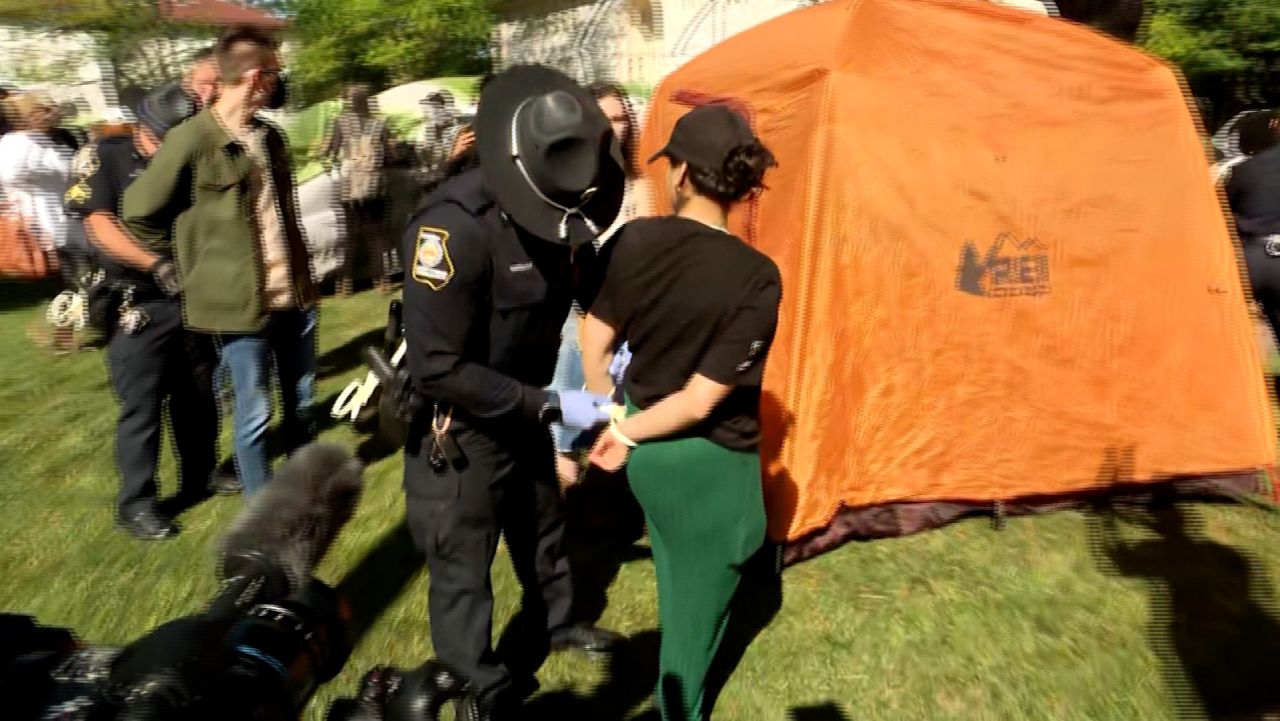A wave of pro-Palestinian campus protests is rippling across the US, with hundreds of people arrested at universities throughout the country this week.
At New York’s Columbia University, the epicenter of the demonstrations, protesting students said they won’t disperse until the school agrees to cut ties with Israeli academic institutions and disinvest its funds from entities connected to Israel, among other demands. Protesters at other campuses have similar demands.
The campus encampments spreading across the nation have brought together students from a variety of backgrounds — including Palestinians, Arabs, Jews and Muslims — to decry Israel’s bombardment of Gaza.
Here are the latest developments:
Columbia University: The faculty senate is expected to vote on a resolution admonishing the school’s president, Minouche Shafik, on Friday over several of her decisions, according to The New York Times. Shafik has faced criticism for authorizing police to shut down student protests on campus.
Brown University: The university identified about 130 students who it alleges violated a school conduct code that forbids encampments on campus. Students found responsible will be disciplined depending on their behavior and other factors, including any prior conduct violations, the university said.
Emory University: 28 people were arrested, including 20 Emory community members, during a protest at the school, Vice President for Public Safety Cheryl Elliott said. Troopers deployed pepper balls “to control the unruly crowd” during the protest, Georgie State Patrol said. A group of Democratic Georgia state lawmakers condemned the “excessive force used by Georgia State Patrol” during arrests at Emory.
Emerson College: More than 100 people were arrested and four police officers injured during an encampment clearing at the Boston liberal arts college, according to the Boston Police Department. President Jay Bernhardt said he recognized and respected “the civic activism and passion that sparked the protest” after dozens of arrests.
Indiana University: At least 33 people were detained on campus Thursday following encampment protests.
George Washington University: DC Metropolitan Police were asked to assist in relocating an “unauthorized protest encampment” on campus, university president Ellen M. Granberg said. The decision came “after multiple instructions made by GWPD to relocate to an alternative demonstration site on campus went unheeded by encampment participants,” she said.
University of Southern California: The university canceled its main commencement ceremony next month, citing “new safety measures in place.” Nearly 100 people have been arrested on the campus.
University of California, Los Angeles: A “demonstration with encampments” formed at UCLA on Thursday.
Northeastern University: An encampment formed at Northeastern University in Boston, where dozens of protesters were seen forming a human chain around several tents.
Other campuses: Since last Thursday, several campuses have been protest sites, including the Massachusetts Institute of Technology, University of Texas at Austin, University of Michigan, University of New Mexico, University of California, Berkeley, Yale University, and Harvard University.





































